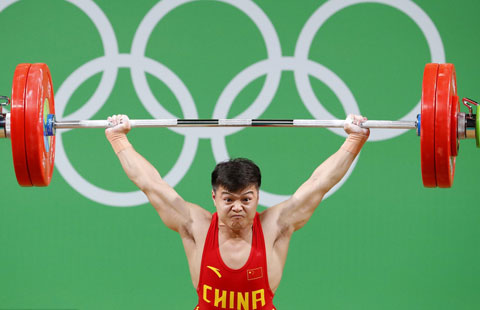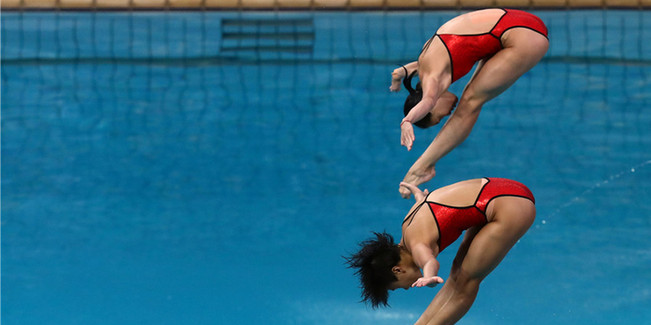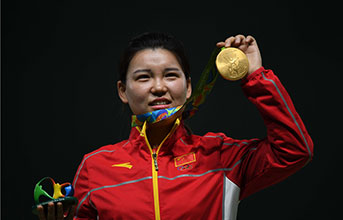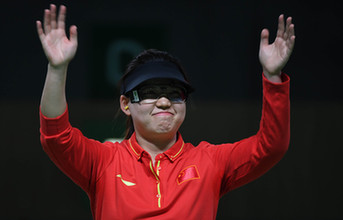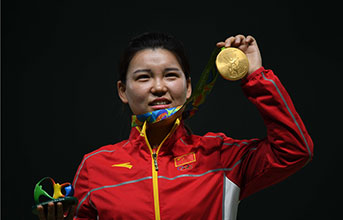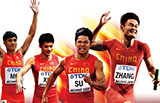Turning the tables on youth
By Associated Press in Rio De Janeiro (China Daily) Updated: 2016-08-08 08:37
Patience, experience can even the odds
When 19-year-old US citizen Yijun Feng played Spaniard He Zhiwen on Saturday, Feng entered the table tennis match with a slight but unusual advantage, despite being outranked and lacking comparable experience.
Decades ago, He and Feng's 58-year-old coach, Massimo Constantini, were rivals.
"I used to get killed right away," Constantini said of his matches against the 54-year-old He, one of the oldest athletes at the Rio Games.
All these years later, He still had it, handily beating Feng four games to two in the opening round of the Olympics.
Experience matters in table tennis.
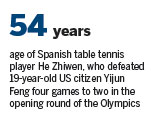
Youthful strength, daring and stamina rule in many Olympic sports, but table tennis often rewards the deep experience that can only be won with hundreds of hours of practice and match-play.
Older players thrive with a close, even devious attention to strategy, a determination to study and then exploit an opponent's weaknesses and a gritty refusal to panic under extreme pressure.
Run down the list of players at theses Games and you'll see the proof. While there are 15-year-old phenoms in the lower levels, the top ranks are mostly in their late 20s and 30s; a fair number of qualifiers are in their 40s and even 50s.
"You need a lot of concentration, rather than a lot of physical strength in this sport," said 40-year-old Vladimir Samsonov, a former top-ranked player from Belarus. He is still in the top 10 and an outside medal contender. "You definitely slow down after you hit 25, but experience counts for a lot in this sport."
Older players can keep going because the game values skill and technique, according to Constantini, the US coach and a former Olympian who played on the Italian national team until he was 37. He likens the game to a chess match.
Table tennis is often as much mental as physical; older players are good at slowing the pace to take away a younger opponent's speed and power, forcing errors with spin and trickery, and encouraging lapses in concentration with frustrating defensive tactics.
Older players have also benefited from a flurry of changes in recent years, including a bigger ball and games now played to 11 instead of 21 points. There's also plenty of time to catch their breath during and between games in the best-of-seven matches.
Earlier on Saturday, 53-year-old Ni Xia Lian from Luxemburg faced Brazil's Caroline Kumahara, 21, and a massively partisan crowd which erupted in thunderous cheers for every Kumahara point. Ni kept calm and won a 4-3 thriller.
"When the pressure is high, at 10-10, and you can feel the stress, the mature player is much cooler. It's palpable," Constantini said.
"You can almost touch the feeling of calm because they have been there many, many times before."
Samsonov, seeded seventh in Rio, no longer practices as many as eight hours a day. He relies on stretching and yoga.
And then there's Feng's opponent on Saturday He.
The left-handed Spaniard, who plays an old-school "penhold" style, is a master of the mental game, using his vast experience to deceive and fluster his opponents.
Feng, ahead of the match, repeatedly called He's style of play "disgusting" because it's so unpredictable and so at odds with the attacking style of many young players today.
In the end, Feng said the match came down to the Spaniard's "legendary" serve, which, like that of many other older athletes, poses serious problems for younger players.
(China Daily 08/08/2016 page2)

